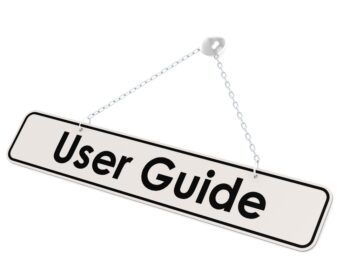Mediation and other alternative dispute resolution tools are becoming popular in settling workers’ compensation disputes. It allows all parties to have a voice in the settlement process, and provides the means for creative solutions that otherwise would not be available to a compensation judge. When preparing for a mediation, it is important for all interested stakeholders to take steps to engage the mediator and work toward reaching an amicable settlement.
Going the Extra Mile
In almost every mediation, attorneys from both sides will prepare and submit a mediation statement. These statements are often long documents that outline every detail of the case. While it is important for the mediator to be an “expert” on the case, lengthy written statements are often counterproductive.
Click Link to Access Free PDF Download
“8 ‘Think Outside the Box’ Tactics to Settle Workers’ Comp Claims”
Instead of focusing on style, attorneys and other stakeholders should focus on substance when preparing these statements.
- Highlight important events, or facts of the case. These key events can include information on prior injuries, medical care related to those pre-existing conditions, and the employee’s vocational status at the time of the work injury. Post-surgical care can generally be summarized to include key points such as restrictions, and placement at maximum medical improvement.
- Discuss any “wild cards” in the case. This is background information, such as how you think the mediator can best approach the settlement. Share insights into your client’s personality. This can include their emotions, and frustrations regarding the workers’ compensation process, or background they may have related to the claim.
- Address strengthens and weaknesses of the claim. Never start from the position that if the matter would go to hearing, it would be a “slam dunk.” In all honesty, there are many unknowns in workers’ compensation, and an extreme level of confidence is usually masking a weakness, or fear.
It is also important for the mediation statement to be submitted to the mediator several days in advance, and not at the last minute. All information exchanged at mediation is confidential, and will not be disclosed to the other side.
You Gotta Have Faith – In the Mediator
Always trust the mediator in terms of management of the mediation. Mediation is a tough process – and very emotional. An effective mediator needs space and time to develop a rapport with all the parties.
Sometimes they might spend a significant amount of time with the other side. More often than not, the injured employee has more issues and challenges to work through than the defense interests. This is because their only contact with the workers’ compensation system comes from first-hand experience – it is more personal to them.
Remember the three “P’s” of mediation:
- Patience: Everyone needs to remain patient with the process. Settlements take time and effort by all;
- Persistence: Mediations can be drawn out – someone might need the “process” to work; and
- Perseverance: All mediations are governed by the self-determination of the parties. You might want to walk away. If you reach that point, let it go a little longer before you walk away.
Expect the Unexpected
Often the only thing predictable about workers’ compensation cases is that they are unpredictable. The examples are numerous:
- Employee sustains a re-injury;
- Employee requires additional medical care, including surgery;
- Employee sustains an injury while receiving medical care;
- Employee continues to have problems and is not placed at maximum medical improvement; and
- Employee is terminated “for cause” while working light duty.
The list is endless.
All parties should expect the unpredictable when preparing for a medication. This is often the case when the employee is expected to resign his or her position as part of a global settlement. All parties need to be prepared to pivot during the course of a mediation. This, in part, can be accomplished when working with a mediator who offers alternative suggestions. In sum, parties need to “think outside the box,” and have a willingness to get creative.
This can best be accomplished when parties are willing to cooperate. Mediation is not a zero-sum game – where someone wins, and the other side loses. The mindset needs to shift to a “win-win” mentality.
Conclusions
The use of alternative dispute resolution is an effective tool when trying to settle workers’ compensation cases. It empowers all parties to the claim and gives them a voice – especially the injured employee who may feel as if they are merely a number within a complex system. In order for mediation to be a success, all parties need to work with the mediator to achieve the desired result.

Contact: mstack@reduceyourworkerscomp.com.
Workers’ Comp Roundup Blog: https://blog.reduceyourworkerscomp.com/
©2020 Amaxx LLC. All rights reserved under International Copyright Law.
Do not use this information without independent verification. All state laws vary. You should consult with your insurance broker, attorney, or qualified professional.
















